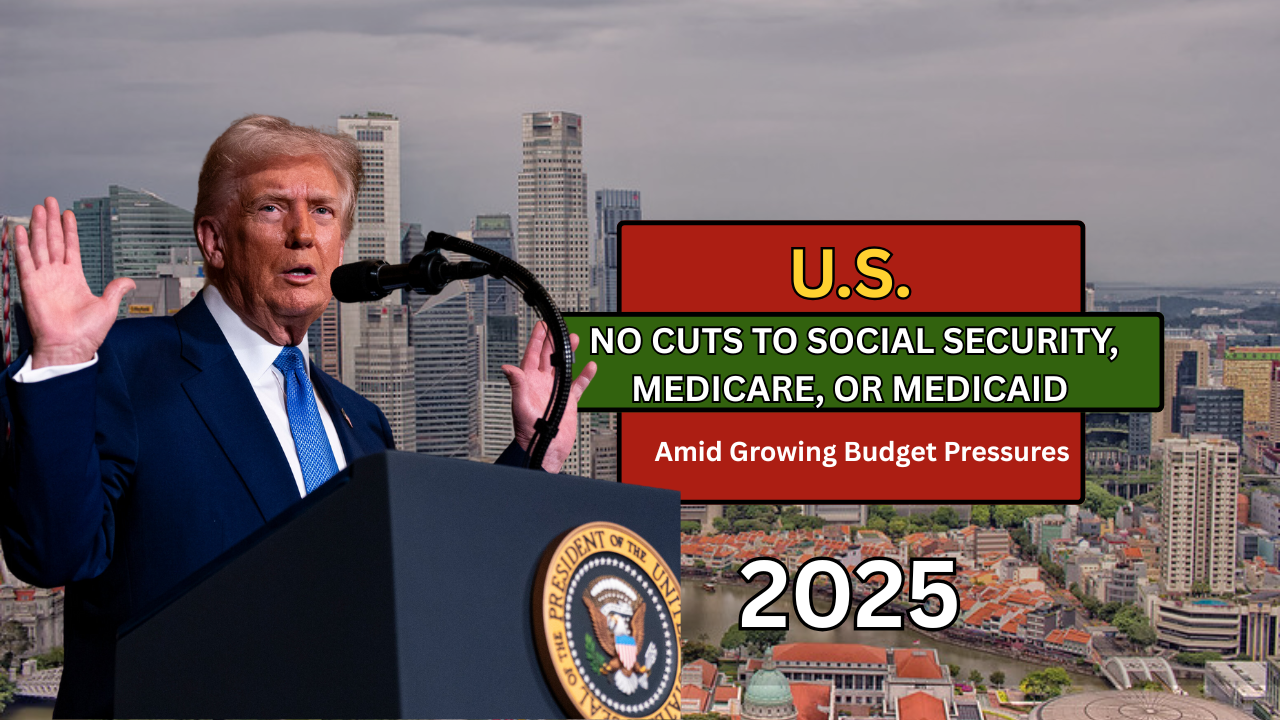President Donald Trump has taken a firm stance against proposed cuts to vital social programs such as Medicare, Medicaid, and Social Security. His public comments reflect concerns over the impact of potential reductions on vulnerable Americans, even as some policy changes and budget proposals continue to raise alarm among advocates and lawmakers.
Trump’s Commitment to Protecting Social Programs:
Trump has made it clear that he is opposed to any cuts to Medicare, Medicaid, and Social Security. In a recent interview, he stated unequivocally, “If it cuts it, I would not approve,” referring to proposed reductions in these programs that are often viewed as lifelines for millions of older and low-income Americans.
This statement highlights his continued opposition to any effort that would harm these essential benefits, particularly in the face of growing concerns about the long-term viability of these programs.
In addition to his verbal commitment, the Trump administration has maintained that Social Security, Medicare, and Medicaid will not be subject to cuts.

A White House spokesperson recently reinforced this position, stating, “President Trump will always protect Social Security and Medicare benefits,” in response to ongoing debates about the future of the programs.
However, this public assurance comes amidst significant changes within the government, particularly under the oversight of the Department of Government Efficiency (DOGE), which has spearheaded several cost-cutting initiatives across federal agencies, including the Social Security Administration (SSA).
Impact of Cost-Cutting Measures on the SSA:
While President Trump’s rhetoric emphasizes protection for Social Security, the administration’s actions have raised concerns among many beneficiaries.
The recent decision by DOGE to lay off thousands of SSA employees and close dozens of field offices has led to questions about the future of Social Security services.
Critics, including former SSA Commissioner Martin O’Malley, have warned that these cuts could lead to significant delays in Social Security payments, with some predicting disruptions that could last between 30 and 90 days.
The changes at the SSA have sparked fears that essential services may be compromised, particularly as millions of Americans depend on timely benefit disbursements for their livelihoods.
With the current workforce reductions, there is growing concern that the SSA may struggle to meet the demands of its aging population and vulnerable citizens. Further delays in services could exacerbate financial hardship for those who are already living on fixed incomes.
The Controversy Surrounding Medicaid:
Medicaid, another crucial program for low-income Americans, has also been subject to intense debate. Trump has expressed his support for Medicaid but has signaled his willingness to engage in reforms designed to reduce inefficiencies and curb fraud within the system.
In recent remarks, he emphasized the need to address waste within the program, stating, “We are going to look for fraud” as part of a broader initiative to streamline services.
Despite these reassurances, several Republican lawmakers have proposed significant cuts to Medicaid as part of larger budget reduction efforts.
These proposals have sparked outrage among healthcare advocates, who argue that slashing Medicaid would disproportionately affect low-income individuals, including children, seniors, and people with disabilities.
The potential cuts could significantly alter the healthcare landscape, leaving millions of Americans without critical medical coverage.
Some of Trump’s supporters argue that reducing waste and fraud in Medicaid is essential for the program’s sustainability. However, critics warn that aggressive budget cuts could undermine the program’s ability to provide healthcare to the most vulnerable members of society.
Concerns About the Future of Social Security and Medicare:
Although Trump has publicly rejected cuts to Social Security, Medicare, and Medicaid, the shifting dynamics of federal budget proposals have left many wondering about the long-term future of these programs.
With growing pressure from deficit hawks within the Republican Party, many fear that future efforts to trim the federal budget could result in reductions to these vital services.

The political climate around these programs remains tense, with both sides of the aisle expressing concerns about their long-term sustainability. On one hand, advocates for Social Security and Medicare argue that these programs are essential for the economic stability of millions of Americans.
On the other hand, those in favor of budget austerity measures argue that reforming these programs is necessary to avoid ballooning national debt.
Conclusion:
In conclusion, while President Trump’s stance on Social Security, Medicare, and Medicaid suggests a commitment to protecting these programs, the ongoing cost-cutting measures within the government raise questions about the future of these essential services. As debates continue over Medicaid reforms and the fiscal responsibility of the federal government, it is clear that the fate of these programs will remain a central issue in the coming years.
External Links:
This article has been carefully fact-checked by our editorial team to ensure accuracy and eliminate any misleading information. We are committed to maintaining the highest standards of integrity in our content.

Deepak Grover is a dedicated content writer at OTE News, specializing in government affairs, public policy, and current events. With a keen eye for detail and a passion for factual reporting, he ensures readers receive accurate and insightful news. Deepak holds a degree in Political Science and has experience in research-driven journalism.
When not writing, he enjoys reading historical books, exploring hiking trails, and staying updated with global political trends. His commitment to ethical journalism makes him a trusted voice at OTE News.




